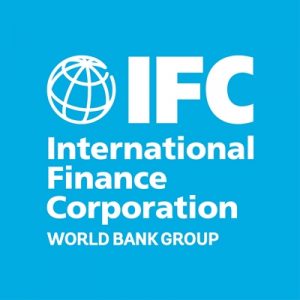
Sao Paulo, Brazil//— IFC, a member of the World Bank Group, is providing a $40 million financing package to Omni S.A Crédito, Financiamento e Investimento to support self-employed truck drivers, micro-entrepreneurs in underserved areas of Brazil, low-income immigrants, and refugees.
IFC’s investment will increase Omni’s capacity to assist their existing as well as new clients, thus supporting the private sector’s recovery in the wake of the pandemic.
The financing package consists of $20 million from IFC’s own-account and $20 million from two impact investors, BlueOrchard Finance on behalf of the BlueOrchard Microfinance Fund and MicroVest. This is IFC and Omni’s first project together, and also Omni’s first transaction with the two investors.
Omni is a Brazilian financial institution founded in 1994, focusing on the most vulnerable segments among Brazil’s micro, small and medium-sized enterprises (MSMEs).
The company has a long and proven track record in financing microentrepreneurs, including women-led enterprises, refugees, and immigrants, and those that are led by individuals in the bottom 40 percent of the country’s income distribution who use the funds to acquire used trucks, motorcycles, and light vehicles.
The project is in line with IFC’s strategy in the country, which includes closing the microfinance gap to foster employment and economic growth, while encouraging the private sector to embrace forcibly displaced populations (FDPs) in the country and promote financial inclusion.
Brazil’s economy stands to benefit from having a developed and vibrant MSMEs segment, which represents almost 54 percent of the formal employment in the country. Expanding the access to long-term financing for MSMEs is key to help them expand and improve their performance and help rebuilt the Brazilian economy through faster, more competitive, and inclusive growth.
Furthermore, the project is part of IFC’s Base of the Pyramid (BOP) Program, which was created to provide crisis relief to IFC’s financial service provider clients, including microfinance institutions, nonbank financial institutions, and MSMEs-focused banks.
IFC’s operation with Omni also includes an advisory services component aimed at strengthening Omni’s risk management to ensure sustainable growth of its microfinance business model and supporting the development of a value proposition for women entrepreneurs, who face severe financing constraints when compared with MSMEs led by men.
For Omni, “having IFC’s partnership is very relevant to our company. It is a seal of credibility for our actions, and, above all, it demonstrates an alignment with our purpose. We are certain that this credit line will give even more impetus to business with micro-entrepreneurs and self-employed truck drivers, who are often placed on the margin of financial inclusion, and to immigrants and refugees who come to try their luck in our country”, Tadeu Silva, Omni’s President said.
“This project will address the financing needs of MSMEs and low-income households whose income streams are being negatively affected by the COVID-19 pandemic. We are also one step closer in achieving our goal to scale up access to a range of high-quality financial services for underserved areas, maximizing the development impact and narrowing the income and employment gaps between the different regions of Brazil,” Carlos Leiria Pinto, IFC’s Country Manager in Brazil, said.
IFC has been active in contributing to the creation of an enabling environment for financial inclusion. During the pandemic, IFC assisted critical financial intermediaries to remain viable by helping them stabilize, sustaining their operations into the recovery period, and supporting the ongoing operations of their MSME clients.
The global development institution has also worked extensively over the last few years with public and private sector stakeholders in Brazil to identify and catalyze private sector solutions to create economic opportunities and promote the resilience of the displaced and host communities.
African Eye Report


